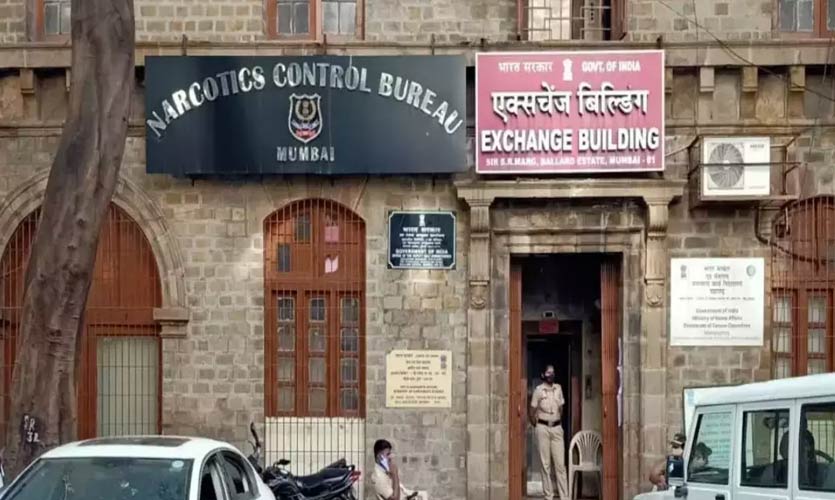It’s not surprising that the Aryan Khan drug bust is unfolding in stark similarity to the Rhea Chakraborty trial. There are several speculations regarding the country’s star kid. From political motivations to a Bollywood-drug cartel nexus, the media is truly having a field day playing with the public imagination. However, upon deeper inspection, the most problematic is the Narcotic Drugs and Psychotropic Substances (NDPS) Act, the law that enables gestapo style enforcement and arbitrary misuse of power. The NDPS Act is an ambiguously written, poorly conceived law. It is considered to be one of the harshest laws in the country.
The first problem with the NDPS Act is that it puts a blanket ban on all types of drugs. The Act states that a narcotic drug means “coca leaf, cannabis (hemp), opium, poppy straw and includes all manufactured drugs”. The psychotropic substance in the Act refers to “any substance, natural or synthetic, or any natural material or any salt or preparation of such substance or material included in the list of psychotropic substances specified in the Schedule”. This is an arbitrary definition of all psychotropic substances and narcotic drugs, including opioids, cannabis, tramadol, amphetamines. This means that without a valid prescription on a person, one could be arrested for even carrying a drug for medicinal purposes. The list of psychotropic substances can be expanded, and items can also be removed on the basis of “information and evidence which has become available to it with respect to the nature and effects of, and the abuse or the scope for abuse of, any substance (natural or synthetic) or natural material or any salt or preparation of such substance or material”.
Reverse Burden of Proof
In common law, the presumption of the innocence of the accused is an enshrined principle. However, there are exceptions to this. Jurists have created a rebuttal to this presumption. A Reverse onus is defined as “one that shifts the burden of proof upon the accused after the Prosecution proves the existence of a foundational fact that leads to the shift in burden”. Therefore, an accused may be presumed guilty at first instance, and the burden of proof to prove his innocence or create doubt about his guilt lies with the defence. Section 54 of the NDPS Act states that “presumption of commission of an offence may…be drawn from the possession of any narcotic drug or psychotropic substance, or any apparatus for manufacture or preparation thereof”. Section 54 can make the presumption of guilt based on the most arbitrary and flimsiest of suspicion. This enables law enforcement to use past WhatsApp chats as proof of guilt, like the one made by the NCB in the Aryan Khan drug bust. The reverse burden of proof also gives law enforcement the power to summon just about anyone, and it is precisely how they questioned Rakul Preet Singh, Deepika Padukone, Ananya Pandey and many more.
A gross misuse of power that the law enables is reflected in the numbers itself. 81,778 people were charged under the NDPS Act in 2018. 99 percent of them were charged for only personal consumption.
The report on ‘Magnitude of Substance Use in India’ prepared by the National Drug Dependence Treatment Centre of the All India Institute of Medical Sciences says that the criminalisation of personal consumption of drugs under the NDPS Act “further enhances the stigma, isolation and hinders access to treatment”, it also suggested that “there is a need of fresh thinking and innovative solutions, as far as legal and policy measures aimed at drug supply control are concerned”.
Punishment for Possession
Under the NDPS Act, punishment is based on the quantity of drugs seized. For instance, the punishment for the cultivation of any cannabis plant can extend to 10 years of imprisonment and a fine of Rs 1 lakh. According to the Department of Revenue, quantities can be divided into commercial and small quantity. Possession of up to 1kg of cannabis is “small quantity”. Whereas, 20kg or more is considered a “commercial quantity”. For charas/hashish, small quantity is defined upto 100gm whereas commercial quantity is 1kg or more.
Punishment of seizure of a small quantity is different from the punishment of seizure of commercial quantity. Possession of a small quantity of cannabis can lead to one year imprisonment and Rs 10,000 fine. For possession of commercial quantity of cannabis punishment “shall not be less than 10 years but which may extend to 20 years”. According to Section 27 of the Act, for consumption of drugs such as “cocaine, morphine, diacetylmorphine or any other narcotic drug or any psychotropic substance” the punishment can involve “rigorous imprisonment for a term which may extend to one year, or with fine which may extend to twenty thousand rupees”.
The Act leaves too large a scope for interpretation. It does not define consumption. Is the act of the consumption itself criminal? The ambiguity of the law also extends to problematic and non-problematic drugs users as both are criminalised. Problematic drug use is “injecting drug use or long duration or regular use of opioids, cocaine and/or amphetamines”. These users need medical attention and rehabilitation. Criminalisation does not solve the problem rather it deprives problematic users of the benefit of treatment.
Read more: Molestation Crime Laws That Need Urgent Revision










